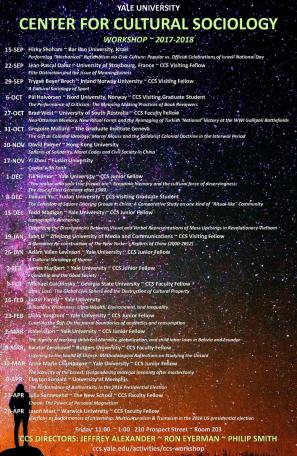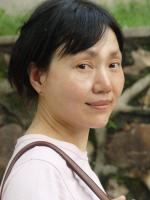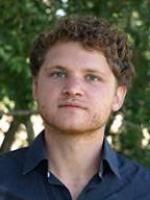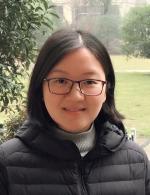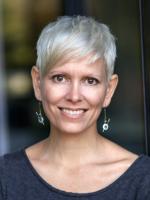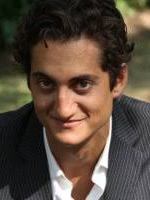|
This week we will be focused on updates and planning. We hope you can all make it to this important meeting. Please come prepared to say a few words about your summer and the progress you have made in your work. This would include things like writing thesis chapters, sending papers off for publication, being published, presenting at the ASA and other conferences, collecting data or making field trips. Please also share your recreational adventures as well.
This fall we are happy to welcome our new Visiting Fellows Jean-Pascal Daloz from the University of Strasbourg, France, and Trygve Broch from Inland Norway University. We also welcome Visiting Graduate Students Pål Halvorsen from Nord University, Norway; Bingxin Zhao from Harbin Engineering University, China; Jiaxuan Yu from Fudan University, China, and Alrun Berger from Ruhr University, Bochum, Germany. Visiting Fellow Juan Li and Postdoctoral Fellow Florian Stoll, both visitors from last year, will be here this Fall as well. You can learn more about them on our Visiting Fellows page.
|
|
Bar Ilan University, Israel
Abstract: The article suggests a new look at nationalism-from-below through a reinterpretation of the concept of “civic culture” to designate traditions and habits shared by broad strata of society, rather than spectacles and symbols produced from above. It argues that nationwide performances of trivial cultural practices that ritualize “our way of life” represent a mode of “mechanical solidarity” in the heart of modern societies. It suggests analyzing this civic culture of nationalism through the lens of cultural pragmatics as a Durkheimian “social fact” and a Latourian “assembling of the social” at the same time. Using the anthropological history of Israeli Independence Day as a case in point, the article examines first the historical failure of nationalism-from-above to design the popular traditions of the holiday; then it describes the unprompted development of what became the popular celebration—the outdoor picnic and cookout. This practice is then analyzed as a social performance that conveys other meanings of the concept of “national freedom,” quite different from those produced from above.
|
|
University of Strasbourg, France. CCS Visiting Fellow
|
|
Inland Norway University. CCS Visiting Fellow
Abstract: Many have documented how sport cultures reproduce oppression, alienation, and rational action. I draw on cultural sociology to show how sports allow us to play with rationality and challenge oppression. Inspired by sociology and anthropology theories on how sport, play and games shape social life, I expose sport as fundamentally meaningful and clarify how meaning making in sport transpires. Sport is a compromise between play and game. Play is a symbolic process that generates imaginative representations of social life. Games are social structures with goals and rules that organize actors’ interaction. In turn, sport is theorized as institutionalized performances in which creative play is guided by game scrips. Sports’ meaning arises through the interpretive play acts in which institutional and broadly available codes come to shape game performances. The meaning of sports is therefore a matter of how its various modalities align and how its actors put culture in play.
|
|
Nord University, Norway. CCS Visiting Graduate Student
|
|
University of South Australia. CCS Faculty Fellow
|
|
The Graduate Institute Geneva.
SPECIAL TUESDAY EVENING WORKSHOP - 5:00 - 7:00 PM
Abstract: Marcel Mauss published his essay “The Gift” (1925) in the context of debates about the European sovereign debt crises and the economic growth experienced by the colonies. This article traces the discursive associations between Mauss’s anthropological concepts (“gift,” “exchanges of prestations,” and “generosity”) and the reformist program of French socialists who pushed for an “altruistic” colonial policy in the interwar period. This article demonstrates that the three obligations which Mauss identified as the basis of a customary law of international economic relations (i.e. the duty to give, the duty to receive, and the duty to give back) served as key references in the French debate about the relationships between metropolises and colonies in the interwar period. Mauss made this relation between colonial policy and the ethnology of the gift explicit in his book, The Nation. Moving beyond Mauss’s interwar writings, Mauss’s traces the genealogy of his later reflections to his involvement in pre-war debates about chartered companies.
|
|
Hong Kong University
Abstract: This chapter focuses on two dimensions of Civil Sphere Theory that tend to be overlooked in the literature on civil society in China: moral codes and spheres of solidarity. I begin with Alexander’s insight that the civil sphere begins with the performance of moral codes of inclusion and exclusion – norms that both define the boundaries of the sphere of solidarity, and that are invoked to restrict or transform non-civil practices in other social spheres. Although there is is no institutionally autonomous civil sphere in China, there are “virtual” and “micro” civil spheres in which moral codes shape spheres of solidarity. However, the picture is complicated by the coexistence of three distinct moral codes derived from Chinese traditional values, from Western liberal values, and from China’s revolutionary tradition – each of which may both contribute to or detract from civil norms. I unpack and trace the genealogies of these three moral codes in modern China, and outline the binary terms by which the boundaries between solidarity and stigmatisation are drawn in each code. While the three codes appear to be contradictory, there are plenty of overlaps and circulations between them, forming norms of civility through which popular discourses hold state and social actors to account. This forms the basis of a virtual civil sphere that comes into being when state and popular actors engage with each other, creatively deploying the ambiguities and overlaps between the three codes. But these spaces, which appear primarily in local contexts, are unstable and subject to imminent collapse. In such situations, rather than strategically deploying and performing their moral codes to establish overlaps and work creatively with ambiguities, the state and popular groups each assert the purity of a single moral code, polluting and stigmatizing the other. The chapter draws on cases from Chinese popular religion to illustrate the formation and breakdown of micro-civil spheres.
|
|
Fudan University, China
Abstract: Borrowing Weber’s dual-interest model and “switchman” hypothesis, this study uses survey data to analyze the internal driving force and diversity in the charitable giving behaviors of private business owners from Wenzhou, China. The study found that: (1) the political and religious beliefs of business owners can have a positive influence on donation behaviors; (2) there are significant differences in the direction, form, and consequences of the donation due to differences in these beliefs, highlighting the selection variation of different beliefs and the affinity of differential interests; and (3) the Chinese Communist Party, as an institutional environment outside of the power of business owners, is able to affect charitable giving by channeling the ideal interests of business owners.
|
|
Yale University. CCS Junior Fellow
|
|
Fudan University. CCS Visiting Graduate Student
Abstract: Previous researches has considered the meaning of subcultures as reflecting or addressing existing social or local problems related to inequality. With the case study of dancing in public squares, or what is sometimes called “Square Dancing” in China, this paper offers an alternative approach to explain the origin of subculture—beyond addressing social problems, subculture groups may also operate as a form of local integration based on the anomie status of contemporary society. This paper shows that due to the influence of anomie, retired women began to initiate dancing groups in public squares. Through their participation, the members started to find unique meanings in the dancing groups, and they later discovered collective feelings, with core values (health, friendship, and unity) being found in the group. By revealing this process, this paper aims to prove that groups that are defined as “subcultural” may arise as a response to the universal problem of meaninglessness and not merely as an attempt to deal with relevant structural social problems with a specific “penetration” (i.e., class consciousness).
|
|
Zhejiang University of Media and Communications. CCS Visiting Fellow
Abstract: Through viewing journalism as a cultural construction and social text, and exploring its underlying symbolic codes and narratives, I will try to make a narrative reconstruction of the New Yorker’s reports of China, from 2000-2009, focusing on Peter Hessler’s works. His writings spanned ten years in China, which could be conceived as a series of historical documents, in a significant individual style, as well as marked by social structural characteristics. To do the analysis through a cultural lens, will be the main method of this paper. On the one hand, I will delineate strands of binaries, codes, symbols in Hessler’s works, including western vs non-western, reformation vs immobility, modern vs non-modern; On the other hand, it may be much more significant for this paper, that striving for a breakthrough against these binaries is consistently existing in Hessler’s narration. The relationship between binary and anti-binary shapes an impressive tension in Hessler’s covers, reflecting the complexities of modernity, and transcultural communication. The core of these analyses is if communication could be possible against the backdrop of such a world, where seems to be full of conflicts and ruptures.
|
|
Yale University. CCS Junior Fellow
Abstract: In this paper I illustrate three pathways by which changes to the body and embodied gender identity take place and become materially iconicized: the visual, the sensual, and the discursive. Drawing on biographical interviews with breast cancer survivors, I show how materiality figures and is figured by the dialectic of the beautiful and the sublime along each of these pathways such that it is rendered as (1) a form that socially reconstructs the iconicity of the breast, (2) a sense that restores the iconicity of the breast’s discursive depths, and/or (3) a discourse that rearticulates the iconicity of the breast. My research builds upon previous studies that examine the relationship between materiality and meaning, body and embodiment, and gender signification. While many of these studies shed light on how the social contingencies of material integrity and embodied performance can obfuscate or illuminate the polysemy of gender in social life, my research starts with but moves beyond the witnessable interactions of social life to chart individual processes by which iconically structured meanings of gender “interact with bodies and identities in the production of new embodied selves” (Shapiro 2010:181). In doing so, I reveal how the iconicity of the breast, enlivened at both the level of individual experience and social life, constitutes a fecund reservoir of meaning structures that can potentially spur cultural change. For these structures not only have the potential to make transgressive bodies comprehensible and thus citable, they also have the potential to render them pleasurable and thus inhabitable.
|
|
Yale University. CCS Junior Fellow
|
|
Georgia State University. CCS Faculty Fellow
|
|
Yale University, CCS Junior Fellow
|
|
Yale University. CCS Junior Fellow
|
|
Yale University.
|
|
Rutgers University. CCS Faculty Fellow
|
|
Yale University. CCS Junior Fellow
|
|
University of Memphis
Abstract: Nearly every part of the 2016 U.S. presidential election offers some vindication for the cultural sociology of politics. Perhaps no aspect of that election cycle invites the analysis of cultural sociology quite as obviously as the concept of authenticity. Here is a concept, cited as determinative of the electoral outcome, that is fundamentally performative and interpretive. Yet on closer examination, the performance of authenticity in the 2016 election challenges certain aspects of the cultural sociology of politics. Specifically, the performance of authenticity by Donald Trump occasioned the violation of cherished democratic ideals. This article investigates how the performance of authenticity interacts with the background representations of American political culture. In the course of this analysis, I argue that authenticity’s fundamental relationship with political liberalism means that the concept is not only a feature of political performance, but also itself a central (perhaps even dominant) ideal in American political culture.
|
|
The New School. CCS Faculty Fellow
Abstract: A “charm offensive” is a diplomatic technique in which negotiators use the power of their personal magnetism to achieve particular goals in international relations. This paper focuses on the 2015 Iranian nuclear deal negotiations with a special interest in the charm offensives of the Iranian Foreign Minister Mohammad Javad Zarif and the Israeli Prime Minister Benjamin Netanyahu. We examine the journalistic coverage of Zarif’s and Netanyahu’s charm offensives in the American (The New York Times and The Wall Street Journal) and the Israeli (Haaretz and Israel Hayom) press. Bringing together literatures in communication studies, sociology, political science and international relations, the paper presents preliminary definitions of “charm” and “charm offensive,” it examines non-Western charm, challenging the notion that it is a characteristic of Western leadership, and finally, it analyzes the role of media, in particular the press, in constructing and presenting charm offensives in Israel and the United States.
|
|
Goethe University Frankfurt. CCS Faculty Fellow
Abstract: In this article, I examine theories of meaning and action in the cultural sociological research programs of Jeff Alexander and Ann Swidler, from the mid-1980s to the present. I show how their presuppositions about the nature of meaning introduced into their theories residual categories that the authors tried to account for in their subsequent works. Next, turning to Paul DiMaggio’s cognitive intervention in cultural sociology in the late 1990s, I illustrate how the cognitive theory and research findings DiMaggio introduced substantiated both Alexander’s and Swidler’s research programs. I also show how DiMaggio’s presentation of the cognitive findings cast in stark relief the tensions between the two cultural sociological approaches, as well as the weaknesses inherent in one-dimensional theorizing. I then turn to contemporary theorizing, which argues that cognitive neuroscientific research dictates that cultural sociology train its attention on individual experience and embodiment. I argue that this theorizing replicates the tensions that animated the works of its predecessors. I conclude by discussing the challenges of interdisciplinarity, and by showing how cognitive neuroscientific research substantiates the very types of culture –collective, extra-individual in nature—that contemporary cultural cognitivists reject. Finally, I argue that cultural sociologists should pursue the goal of theoretical multidimensionality.
|
